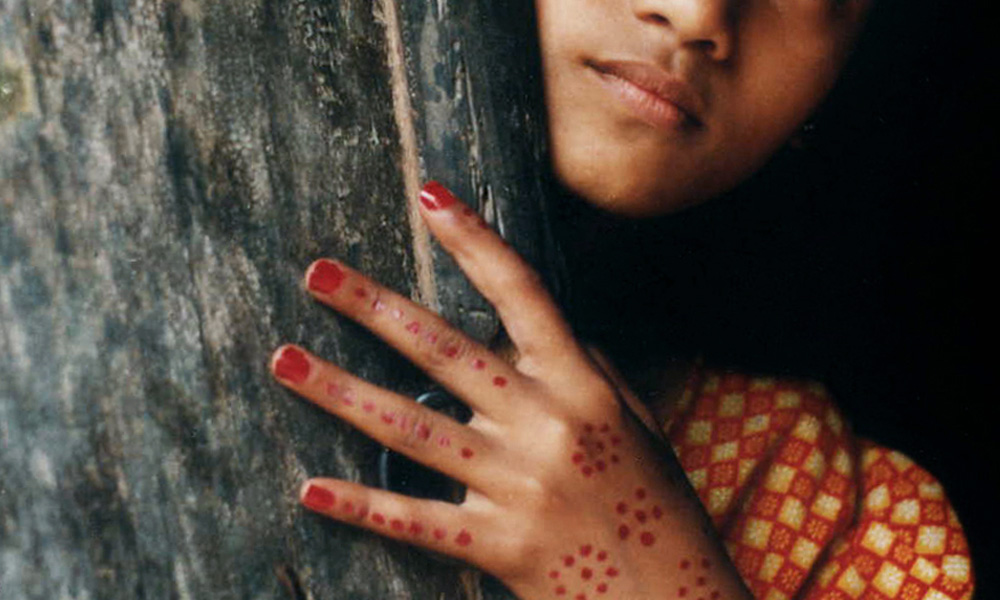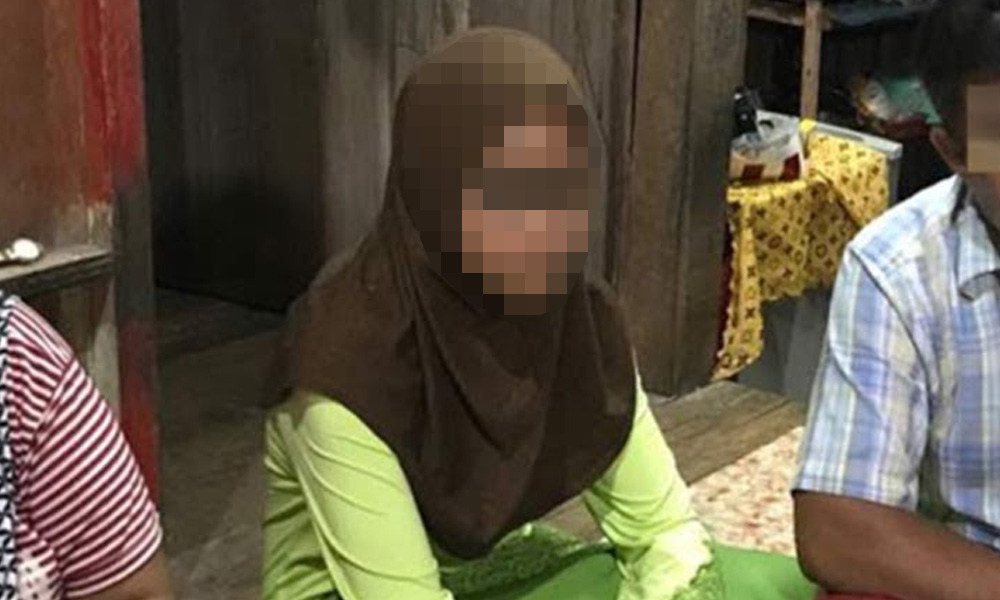
According to Uqbah ibn Amir, the Messenger of Allah once told his people not to hate their daughters, “for daughters are your precious companions” (Musnad Ahmad 16922, Hasan Al-Haythami).
And sure enough, the Prophet himself exemplified the sort of precious love that every father should have towards his daughters.
From the moment she was born, the Prophet protected Fatimah al-Zahra from the various harmful practices which were regarded as norms during his time. He had the choice to do what everyone else was doing, or to reject things out of love for his daughters. This included female circumcision and female infanticide - the deliberate killing of baby girls because they were regarded as less valuable than baby boys.
In fact, the Prophet raised the value of girls to be equal to boys. In a narration by Anas, it was reported that a man was with the Messenger of Allah when his son came. He kissed the boy and sat him on his thigh.
Then his daughter came and she sat to his side. Upon seeing this, the Prophet said, “Why do you not treat them equally?” (Sharh Ma’ani al-Athar 3838, Hassan Al-Albani).

The Prophet himself questioned the idea that girls and boys were valued differently, and thus loved and brought up differently. In fact, the Prophet broke many gender prescribed roles in how his family was run.
Al-Aswad once asked Aisha, what the Prophet did when he was at home. Aisha responded that he would do household chores, and when prayer time came, he would go out (Sahih al-Bukhari 644).
The Prophet taught Fatimah to be gentle and compassionate, and she grew up to be very much like her father where her behaviour was concerned. Aisha once said that she had never seen anyone more closely resemble the disposition, mannerism, and characteristics of the Messenger of Allah than his daughter Fatimah.
“If she entered his home, the Prophet would stand for her, take her by the hand, and seat her in his place. If the Prophet entered her home, she would stand for him, take him by the hand, kiss him, and seat him in her place” (Sunan Abi Dawud 5217, Sahih Al-Albani).
When she was of age, the Prophet’s companions, Abu Bakar as-Siddiq and Umar al-Khattab offered a marriage proposal to her. In a narration by Buraida, the Prophet responded to their proposals by saying that she was too young for them (Sunan al-Nasa’i 3221, Sahih Al-Albani).
According to Al-Qari, “The meaning is that she was too young to be suitable for the much older age of Abu Bakar and Umar” (Mirqat al-Mafatih 6104). The Prophet claimed full responsibility over the suitability of a groom for his daughter, with their age gaps being an important factor for him.
So when Ali ibn Abi Talib, who was about 17 years younger than Umar and 28 years younger than Abu Bakar, but only between four to ten years older than Fatimah, offered a marriage proposal to her, the Prophet said, “She is yours, if you treat her with the best of company” (Al-Mu’jam al-Kabir 3490, Sahih Al-Albani).
Even though Fatimah was married to Ali, the Prophet remained very close to Fatimah and constantly visited her. One day, the sons of Hisham ibn al-Mughirah went to meet the Prophet to seek his permission to marry their daughters to Ali ibn Abi Talib.
This made the Prophet upset and he went to the pulpit before his congregation and said, “I do not give permission, again I do not give permission, and again I do not give permission, unless Ali ibn Abi Talib intents to divorce my daughter and marry their daughters. Verily, she is part of me. I am upset by what upsets her, and I am harmed by what harms her” (Sahih al-Bukhari 4932, Sahih Muslim 2449).
According to Al-Nawawi, the Prophet had prohibited his daughter to be entered into a polygamous marriage because of his perfect compassion for her, and because he feared that she will be tested with jealousy (Sharh al-Nawawi, Sahih Muslim 2449).

Thanks to the loving upbringing of the Prophet, Fatimah became one of the exemplary women of Islam. She played major roles in important events such as the Battle of Ubud and the Treaty of Hudaybiyyah. According to Ibn Abbas, the Prophet once said that the best women among the people of Paradise are Khatijah bint Khuwaylid, Fatimah bint Muhammad, Maryam bint Imran and Aisyah bint Muzahim, the wife of the Pharoah (Musnad Ahmad 2896, Sahih Al-Albani).
The relationship between the Prophet and Fatimah shows how, when a girl is dignified and is treated with respect, she is able to flourish to become an important leader in her community.
The Prophet not only protected Fatimah from dangerous norms, but also stood up for her when she was being discriminated against, and also sided her when there was a possibility of hurt towards her. All of this, he did out of fatherly love for his daughter.
When verse 24:63 of the Al-Quran was revealed, Muslims immediately stopped referring the Prophet as ‘O Muhammad.’ Instead, they referred to him as the ‘Messenger of Allah.’ Fatimah herself did not dare to call him by her term of endearment for him - “Dear father.” When she went to him, she would say, “O Messenger of Allah.” Upon hearing this, the Prophet got upset and turned away from Fatimah.
After she called him three times by this reference, he turned to her and said, “O Fatimah, this verse was not revealed for you, and not for your family, and your descendants. You are of me and I am of you. This was revealed in relation to the oppressors and bad disposition, ill-mannered of Quraish.”
He then added, “Say ‘Dear father,’ for these words are more life-giving for the heart and more pleasing for Allah” (Manaqib ibn Shahr Ashub 320).
The Prophet loved his daughter so sincerely, that the pride of being her father brought joy to him. The Prophet once said, “Whenever I long for Paradise, I kiss the throat of Fatimah” (Fadhael Al-Khamsah 127).
11th October marked the International Day of The Girl Child. Girls and women in Malaysia today are still exposed to all kinds of harm such as female circumcision, child marriage, marital rape, unconsented polygamous marriages and other gender based violence and discriminations.
The Prophet challenged the norms of his time to protect his daughters. It is time that we too did the same for ours.
MAJIDAH HASHIM is a human rights defender and a divemaster in training. She can be contacted via Twitter at @majidahhashim - Mkini



No comments:
Post a Comment
Note: Only a member of this blog may post a comment.